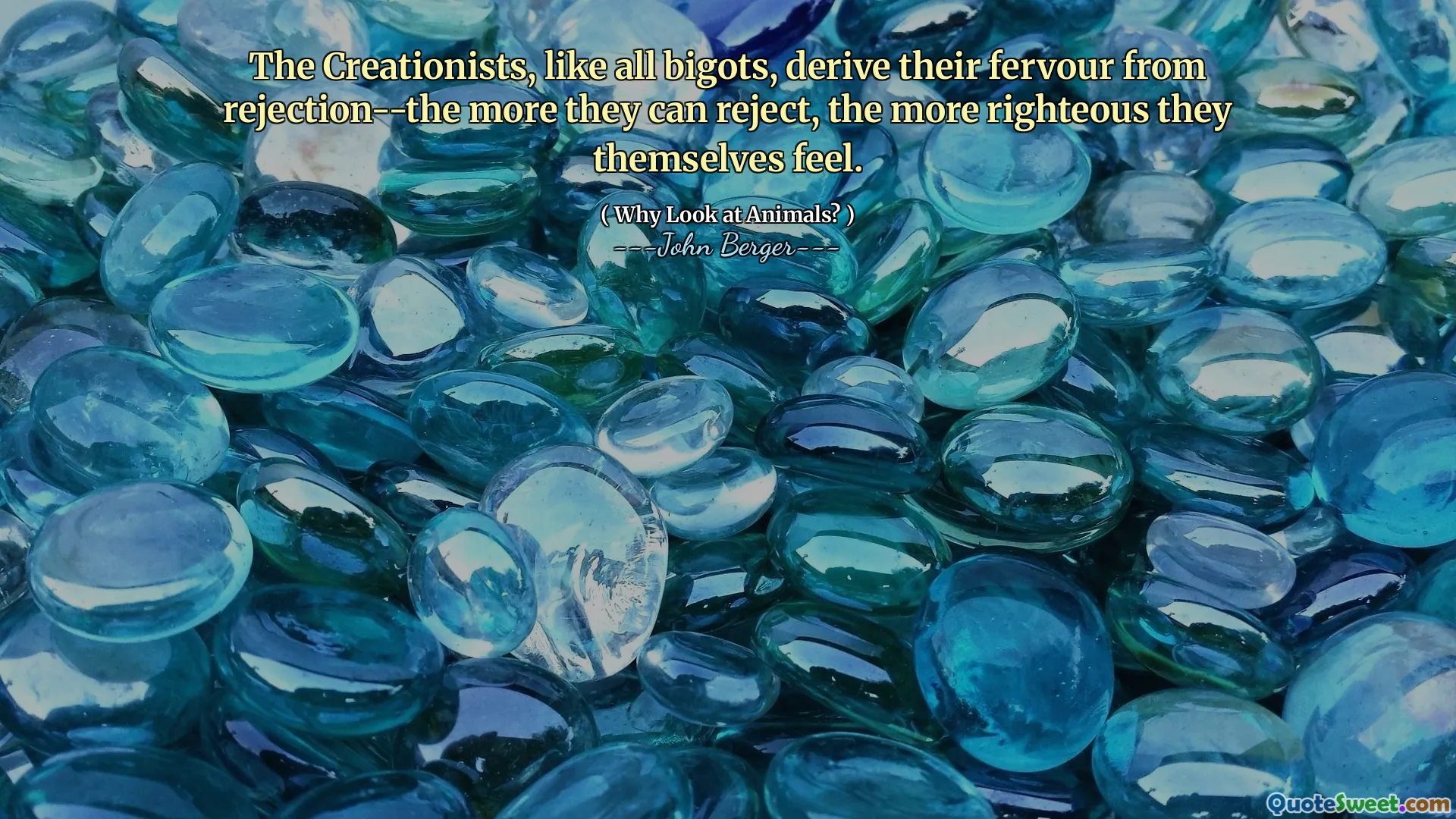
The Creationists, like all bigots, derive their fervour from rejection--the more they can reject, the more righteous they themselves feel.
This quote highlights a profound insight into the nature of bigotry and the psychological mechanisms that underpin it. At its core, it suggests that much of the fervor and zealotry exhibited by creationists—or any bigots—is rooted in a rejection of ideas, beliefs, or facts that challenge their worldview. This rejection often acts as a defense mechanism, shielding their identity and beliefs from scrutiny. When individuals feel threatened by alternative perspectives, they may double down, producing a sense of righteousness as a form of psychological victory over what they perceive as opposition or uncertainty.
This tendency is not limited to creationists but is observable across various domains where dogmatism and intolerance thrive. The act of rejecting differing viewpoints can create an echo chamber effect, where entrenched beliefs are fortified, and the individual’s sense of moral or intellectual superiority is amplified. In this context, rejection becomes more than just an unwillingness to accept differing ideas; it morphs into a source of identity and validation.
Analyzing this pattern invites a reflection on how fear, insecurity, and identity contribute to bigotry. When people derive their sense of righteousness from rejection, it points to a deep-seated need for certainty and control. Challenging their worldview may threaten their fragile sense of self, prompting defensive reactions. Recognizing this mechanism enables greater empathy and understanding, encouraging dialogues that address underlying fears rather than merely confronting surface-level opposition.
The quote also underscores the importance of open-mindedness and the danger of allowing rejection to dominate one’s outlook. It acts as a reminder that true righteousness does not stem from rejection but from openness, humility, and a willingness to engage with differing ideas, even when they challenge our beliefs.






